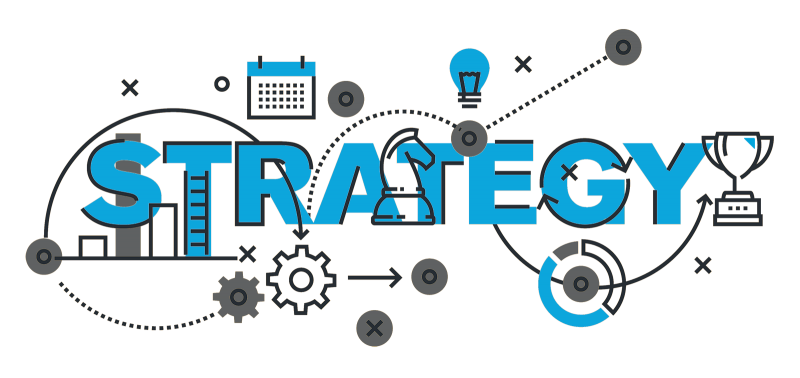Types of CRA Benefits You Can Apply for
A responsible citizen should always be up to date on tax payments. Your taxes go a long way in supporting the government to ensure adequate infrastructural development and provide funding for healthcare and education.
By meeting up with your tax obligations, you also stand a chance to benefit from several deductions and credits.
The Canada Revenue Agency (CRA), the sole administrator of tax laws for the Canadian government and surrounding provinces and territories, has created various benefits for taxpayers.
This article explores the numerous types of CRA benefits and their eligibility criteria.
1. Canada Recovery Caregiving Benefit (CRCB)
Taking care of your older loved ones at home might sometimes require you to take a few days off from work. While away from work, you are unlikely to receive any income, leading to financial difficulties.
However, as part of CRA benefits, the Canada Recovery Caregiving Benefit (CRCB) scheme presents an opportunity for an alternative source of income for assistance during this period.
The CRCB, also known as CRA recovery benefit, is a caregiver benefit in Ontario introduced to provide income support to employed and self-employed people who cannot work due to certain reasons. Before applying for this program, check out what Seasons Retirement says about CRCB eligibility criteria.
Alternatively, you can bring your older loved ones to retirement homes like Seasons Retirement communities, where they can live full, fun-filled, and comfortable lives while you focus on your job and career.
Apart from the CRA caregiver benefit explained above, here are others:
2. Goods and Services Tax or Harmonized Sales Tax (GST/HST) credit
The GST/HST credit is a tax-free payment made out quarterly. Filling in your tax automatically qualifies one to be considered for this payment.
This credit aims to support individuals and families earning low and modest incomes to offset the amount paid for their goods and service tax and harmonized sales tax. Sometimes, the CRA directly uses this credit payment to settle people’s tax debts and other government debts.
You can expect to receive $456 if you’re single, $598 if you’re married or have a common-law partner and up to $157 for each CCB-and-GST-registered child under 19 years.
3. Canada Child Benefit (CCB)
The Canada Child Benefit is a monthly payment made to qualified families to assist with the expenses involved in the effective upbringing of their children below 18 years of age. The payment is tax-free.
This benefit may also include the child disability benefit and other related provincial programs.
Every July, the amount of this benefit payment is calculated using your adjusted family net income from the previous year, indexed to inflation. This means that a change in your income in 2021 will only reflect on your payments in July 2022.
4. Canada Training Credit (CTC)
The CTC, made available in 2020, is a refundable tax credit provided to help Canadians with the cost of eligible training fees. You can become eligible for this credit from the age of 26, provided you have been regular on your tax payments.
The Canada Training Credit Limit (CTCL) for each year is displayed on your latest assessment or reassessment notice. After filing an income tax and benefit return, the CRA checks your criteria and, if found eligible, will increase your CTCL by $250 every year up to a maximum of $5,000.
5. Canada Caregiver Credit (CCC)
This credit is given to caregivers. If you are supporting your spouse, a common-law partner, or a dependent who has a physical or mental impairment, you will be eligible to apply for the CCC. It is a non-refundable tax credit.
6. Disability Tax Credit (DTC)
This non-refundable tax credit aims to support persons living with disabilities to help subsidize the amount of money they may have to pay as income tax.
You may also be eligible for this tax credit if you’re a caregiver to a disabled individual. Qualifying to receive the DTC can open doors to other territorial, provincial, and federal programs.
7. Medical Expense Tax Credit
It is a non-refundable tax credit you can claim for yourself, your spouse, and other dependents like your children. Being eligible for this credit may qualify you for other related medical expense credits and deductions.
8. Home Accessibility Tax Credit
This is a non-refundable tax credit to support you with the cost of making your home accessible. This credit is available for a qualifying individual or an eligible individual making a claim for a qualifying individual.
A qualifying individual can be someone eligible for the disability tax credit or anyone up to the age of 65 at the end of that year. An eligible individual can be a spouse, child, parent, uncle, aunt, nephew, niece, or grandparent of a qualifying individual.
9. Canada Workers Benefit (CWB)
This is a refundable tax credit to help individuals and families who are working and earning a low income. This benefit is divided into basic amounts and disability supplements.
You become eligible for this benefit when you file your income tax return.
Individuals and families eligible for this credit can get up to half of their payments in advance instead of waiting for tax time.
10. Child Disability Benefit
It is a tax-free monthly payment made to families caring for a child under 18 who has severe and prolonged physical or mental impairments.
To gain this benefit, you must be eligible for the Canada Child Benefit (CCB), and your child must qualify for the Disability Tax Credit (DTC).
From July 2021 to June 2022, you can receive as much as $2,915 for each child who is eligible for DTC.
11. Northern Residents Deductions
These deductions cover living costs and travel benefits. You may qualify for the full amount if you lived in a prescribed northern zone for a continuous period of at least six consecutive months or 50% of the amount if you lived in a prescribed intermediate zone.
If you live in a prescribed zone, you can claim up to $11 per day for the duration of time spent living in the area. But for a prescribed intermediate zone, you will receive $5.50 each day.
The deductions aim to provide relief to residents of zones often faced with higher costs of living, environmental difficulties, and reduced access to services.
Endnote
Combining work with caring for your kids, older relatives, and other family members can be pretty demanding. It becomes more challenging when your dependents need special care and attention.
If you have to take some time off work to take care of a loved one, qualifying for the Canada Recovery Caregiving Benefit (CRCB) and any of the other CRA benefits mentioned in this article can provide some financial relief during the period.




